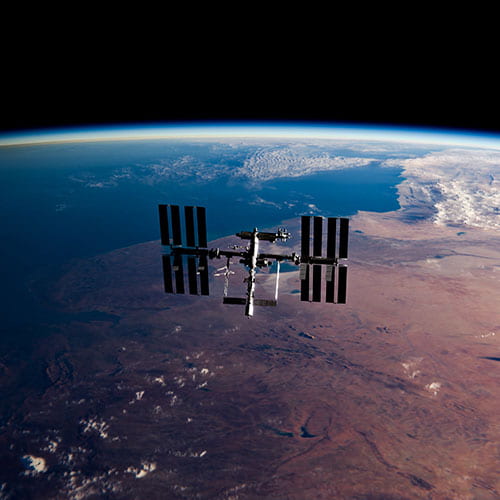By George W.S. Abbey
Senior Fellow in Space Policy
Earlier this week, Russia suggested it would withdraw from the International Space Station (ISS) after 2024, but it now reportedly says the country won’t leave the ISS until it has built its own station sometime after 2028.
Since its inception in the early 1990s, the International Space Station has been an extremely successful cooperative endeavor, with 15 nations together manning and keeping the station in orbit for over 20 continuous years. Although there have been differences between the nations in many areas, they found common ground as they collaborated in space. The ISS is proof that nations can indeed work together when they share a common purpose. Those who have flown on the station point out that no national boundaries are seen from space: it is one world.
Rather than abandon what has successfully brought people and nations together, the world community should build on the ISS experience to work toward solutions in other critical areas, such as energy and the environment. Now is not the time to turn away from such collaborative endeavors — the International Space Station has proven it can be done!
This September will mark the 60th anniversary of President John F. Kennedy’s iconic “We Choose to Go to the Moon” speech at Rice University. At the height of the Cold War, Kennedy spoke of the “special capacity” for the U.S. and then-Soviet Union to “further joint efforts in the regulation and exploration of space.”
“Space offers no problems of sovereignty … the members of the United Nations have foresworn any claim to territorial rights in outer space or on celestial bodies,” Kennedy said. “Why should the United States and the Soviet Union, in preparing for such expeditions, become involved in immense duplications of research, construction, and expenditure? Surely, we should explore whether the scientists and astronauts of our two countries — indeed of all the world — cannot work together in the conquest of space.”
Kennedy further called on nations around the globe to work together in “the effort to improve the conditions of man … It is the task of all nations — acting alone, acting in groups — [because] the Earth, the sea and the air are the concerns of every nation.”
President Kennedy’s dream for joint cooperation between nations was realized with the International Space Station. That dream should not be abandoned. I would hope that our Russian colleagues will reconsider their decision.
George W.S. Abbey is the senior fellow in space policy at the Baker Institute. From 1996 to 2001, he served as the director of NASA Johnson Space Center.
